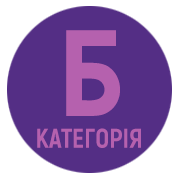FORMATION OF PRACTICAL SKILLS OF STUDENTS’ INTERACTION WITH PEOPLE WITH DISABILITIES IN THE PROCESS OF STUDYING THE DISCIPLINE «TRAINING OF COMMUNICATION SKILLS OF A CORRECTIONAL TEACHER»
DOI:
https://doi.org/10.32782/inclusion/2024.3.6Keywords:
interaction, communication, skills, people with disabilities, psychophysical developmental disorders, correctional teacher, trainingAbstract
The article considers the concept of “communication”, substantiates the importance of forming practical skills and abilities to cooperate with children and adults with disabilities among students majoring in “016 Special Education”: to establish contact, maintain it, communicate effectively, and establish effective interaction. These knowledge, skills and abilities, which are important for the professional activity of a correctional teacher, are formed in higher education students in the process of studying the discipline “Training of Communication Skills of a Correctional Teacher”. Of particular importance is the formation of communication skills in interaction with children and adults with disabilities. It is noted that students have the opportunity not only to master theoretical knowledge but also to practice it in practical interaction in the process of training, which requires in-depth knowledge of the peculiarities of organizing such interaction in accordance with the category of the interlocutor’s disorder and, accordingly, the specifics of perception, understanding, reproduction of information, and behavioral characteristics. The article emphasizes the importance of taking into account the category of psychophysical disability, the means of communication available to different categories of people with psychophysical disabilities, the spatial location of interlocutors during communication, taking into account the emotional state and specific individual capabilities of each person, the peculiarities of cognitive development, behavioral characteristics and difficulties that may arise when interacting with people with disabilities who are full members of society, in which the realization of all their rights should be ensured.
References
Горох Г.В., Карпалюк В.С. Комунікативна лінгвістика: навчально-методичний посібник для студентів заочного відділення. Камянець-Подільський: Зволейко Д.Г., 2009. 284 с.
Мойсеюк Н.С. Педагогіка. Навчальний посібник. 5-е видання, доповнене і перероблене. К., 2007. 656 с.
Навчальна програма «Покращення рівня спілкування та роботи працівників нової поліції з особами з інвалідністю»: посібник тренера / І.Г.Саранча, С.Ю. Ілініч, С.П.Миронова, Г.В. Давиденко, О.І. Дмітрієва, О.В. Чопік, Я.В. Грибальський. Вінниця: ТОВ «Нілан-ЛТД», 2018. 120 с. С. 64–79.
Опалюк О.М., Опалюк Т.Л. Лісовий О. І., Левицький В.Е., Нестерова І.В. Психолого-педагогічні засади міжособистісного спілкування: навчально-методичний посібник. Кам’янець-Подільський: ТОВ «Друк-Сервіс», 2013. 184 с.







